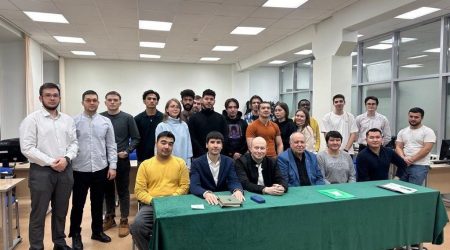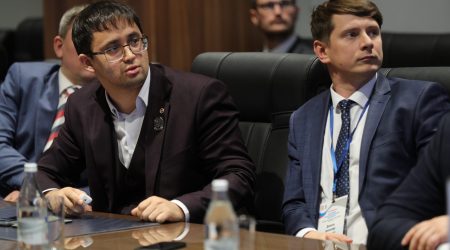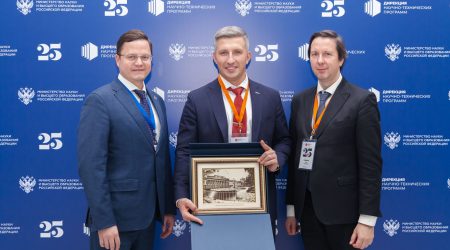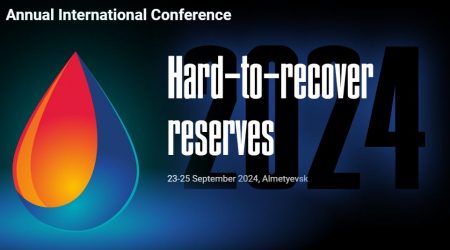KFU represented at 22nd Mendeleev Congress in Sirius


From 7 to 12 October, chemists and industrial partners from around Russia gathered in Krasnodar Krai, including Chair of the Department of Petroleum Engineering Mikhail Varfolomeev and KFU’s invited scholar, Professor of the Mexican Petroleum Institute Jorge Ancheyta.
“I presented the results of catalytic aquathermolysis technology, which is fundamentally new and allows the conversion of heavy oil components at depths of hundreds of meters. Only a few research groups in the world are working on this topic. Within the framework of joint research on the basis of Kazan Federal University we have managed to achieve exceptional results, which are not only theoretically significant, but have already been used in practice in the fields of Russia and the Republic of Cuba,” says Ancheyta.
The results of KFU research in in-situ combustion over the past few years were also presented as part of an invited lecture at the Chemistry of Fossil and Renewable Hydrocarbons section. Mikhail Varfolomeev presented a technology based on air injection into the reservoir. It triggers oil combustion processes, which heats up the formation, reduces the viscosity of heavy hydrocarbons and partially processes them underground, as the temperature in the reaction zone can reach above 400 degrees Celsius.
“The technology of in-situ combustion has a number of advantages over other thermal methods of enhanced oil recovery. So it can be applied at deeper objects than vapor-thermal methods, and emissions into the environment are significantly less,” comments Varfolomeev.
Today KFU scientists conduct comprehensive research of this technology. This is necessary, first of all, to understand the mechanisms of the processes. Studies of model oil components have already been carried out and the main intermediate stages of the oxidation process have been identified. Further, the oxidation of different types of oil has been investigated and general patterns of their combustion from physicochemical properties and composition have been found.
“We developed a whole series of chemical additives to initiate and intensify the oxidation process under reservoir conditions. A very important stage was to evaluate the influence of porous medium on oil oxidation processes at high pressures. Some minerals turned out to be promoters and some inhibitors of oil burning process. And an important practical result was to study the effect of combustion on the displacement factor and properties of the produced oil,” adds Varfolomeev.
For all the studied fields in Russia, Cuba and Oman it was shown that the proposed technology of catalytic combustion allows to increase oil production and improve its characteristics compared to the initial oil in the reservoir (reduce viscosity and the share of tar and asphaltene fractions). This is an important step towards successful development of hard-to-recover hydrocarbon reserves.
Mikhail Varfolomeev also took part in two round tables – “On mechanisms of interaction between fundamental science and the real sector of economy” and “Development of youth laboratories in new materials and chemistry”. These scientific discussions were attended by representatives of the governing departments of the Ministry of Science and Higher Education of the Russian Federation, the Russian Academy of Sciences, the Russian Science Foundation, PJSC Sibur, and representatives of the scientific community.
“At these round tables the successful experience of KFU in the implementation of projects with industrial partners with pilot application of scientific developments in industry was presented,” emphasizes Varfolomeev.









